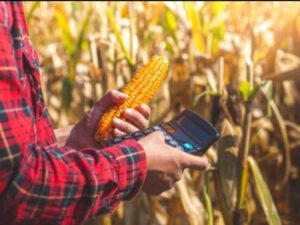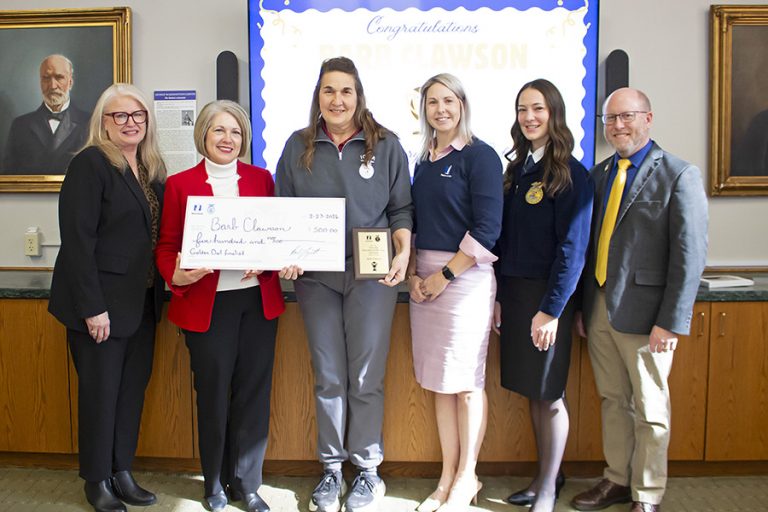AMES, Iowa – Farmers who want to gain a better understanding of their Carbon Intensity Score can take advantage of a simple calculator developed by an economist with Iowa State University Extension and Outreach.
The calculator relies on just five input numbers, according to Alejandro Plastina – corn acres, nitrogen use and corn yield with current farming practices, change in nitrogen use and change in yields under new farming practices.
The score is a calculation of how much carbon is used per bushel of crop production and is an important measurement used for selling grain to certain ethanol plants that plan to participate in the federally incentivized Carbon Intensity Score program.
Beginning in 2025, certain participating ethanol plants will receive tax credits for accepting crops produced with less carbon, according to Plastina. Some may also offer incentives to farmers for delivering lower-carbon crops.
The tax credit that grain buyers will receive is called the Federal Tax Credit 45Z, or the “Clean Fuel Production Credit.” It consolidates and replaces several fuel-related credits scheduled to expire at the end of 2024.
Plastina hopes farmers will take advantage of the calculator to understand their current score – and ways they could make changes that result in a lower score.
“The farmer could potentially get an extra payment if the carbon intensity score is lower than the buyer’s threshold,” he said. “We don’t yet know how much, if any, of the credit will pass through to the producer, but the potential is there.”
Plastina explains the significance of the score and his calculator in a recent article in the Ag Decision Maker. Although private calculators exist, he said this one is free to use and convenient.
Plastina said the calculator gives farmers a good understanding of where they’re at today, and what they need to do differently in the future if they want to obtain a lower score.
However, he reminds farmers that the rules and the model for the program will not be finalized until 2025, and that final decisions could affect how the calculation is determined.
For more information, Plastina can be reached at 515-294-6160 or plastina@iastate.edu

Photo credit: Farmer checking on his corn, by surachat/stock.adobe.com.

(contributed press release, ISUANR)



